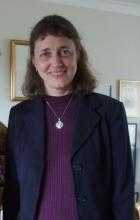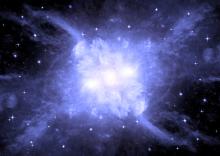American Association for the Advancement of Science

After sessions on gravitational waves, nuclear forensics, and artificial intelligence, one of the world’s largest general science conferences invited attendees to hear from an Episcopal priest.
The Rev. Fletcher Harper preached on climate change, and how to get a vast segment of the world’s population to pay better attention to what scientists know but many others doubt: that the problem is worsening and portends disaster.
“My entreaty for scientists is to be able to speak publicly about why you care,” said Harper, executive director of GreenFaith, an interfaith nonprofit that aims to galvanize religious people to safeguard the environment.

Science and education professionals are increasingly alarmed about the impact Donald Trump’s cabinet picks — many of them evangelical Christians — could have on science standards in public schools.
Candidate Trump repeatedly pledged to end the existing Common Core curricula standards for math and English. Critics worry that could open the door to rethinking science standards, and lead to the teaching of creationism and Intelligent Design, pseudo-scientific notions about Earth’s origins with little or no support from scientists.

Responding to a real or perceived gap between science and faith, 10 U.S. seminaries will receive a combined $1.5 million in grants to include science in their curricula, the American Association for the Advancement of Science announced Oct. 8.
A diverse set of Christian seminaries will be awarded grants ranging from $90,000 to $200,000 provided by the John Templeton Foundation, which has funded various efforts to bridge science and faith, including $3.75 million to AAAS for the project.
“Many (religious leaders) don’t get a lot of science in their training and yet they become the authority figures that many people in society look up to for advice for all kinds of things, including issues related to science and technology,” said Jennifer Wiseman, director of the AAAS Dialogue on Science, Ethics and Religion.
Indeed, evangelical Protestants are more than twice as likely as other Americans to say they would turn to a religious text, a religious leader or people at their congregation if they had a question about science, a study released by AAAS earlier this year suggested.

Scientists and Christian evangelicals can collaborate for the good of society but it will take some serious effort, experts said as they launched a new campaign to change perceptions between the two groups.
The American Association for the Advancement of Science and its Dialogue on Science, Ethics, and Religion program released a major research project on Sunday, at the AAAS annual meeting in Chicago, and announced an upcoming series of conferences mixing believers, scientists, and many who are both.
The massive survey of views on God, religion, science included 10,241 respondents and took a particularly close look at the views of evangelicals and people in science-related occupations.